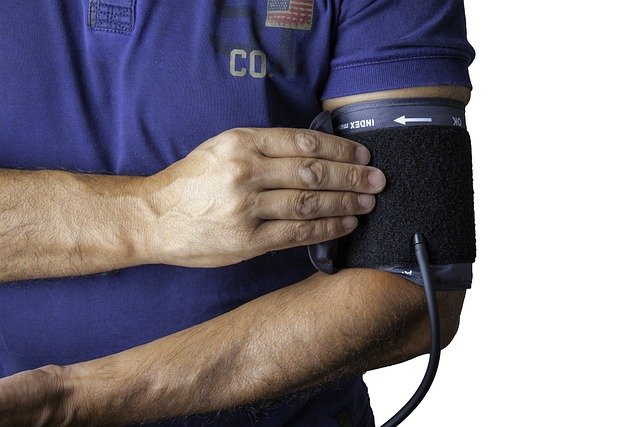Monitoring Programs for Kidney Function and Health
Kidney health is essential for overall well-being, as these vital organs filter waste, regulate blood pressure, and maintain fluid balance. Understanding how to monitor kidney function, recognize early warning signs, and prevent medication-induced damage can help preserve renal health. Various monitoring programs and preventive strategies exist to support individuals at risk of kidney disease, offering structured approaches to early detection and management.

Maintaining optimal kidney function requires awareness, regular monitoring, and proactive health management. The kidneys perform critical tasks daily, and any decline in their function can lead to serious health complications. Structured monitoring programs provide valuable tools for tracking kidney health, while understanding potential medication risks and recognizing symptoms early can prevent progression to advanced kidney disease.
What Are Medications That Can Cause Kidney Disease?
Certain medications pose risks to kidney health, particularly when used long-term or in high doses. Nonsteroidal anti-inflammatory drugs, commonly known as NSAIDs, can reduce blood flow to the kidneys and cause acute or chronic damage. Proton pump inhibitors, frequently prescribed for acid reflux, have been linked to interstitial nephritis and chronic kidney disease when used over extended periods. Antibiotics such as aminoglycosides and certain antiviral medications can be nephrotoxic, especially in patients with pre-existing kidney conditions. Contrast dyes used in imaging procedures may trigger contrast-induced nephropathy in susceptible individuals. Certain blood pressure medications, chemotherapy agents, and immunosuppressants also carry kidney-related risks. Patients taking these medications should undergo regular kidney function tests and discuss alternative options with healthcare providers when appropriate. Awareness of these risks enables better medication management and reduces the likelihood of drug-induced kidney damage.
How to Recognize the Signs and Symptoms of Kidney Disease
Early kidney disease often progresses silently, making symptom recognition crucial for timely intervention. Fatigue and weakness are common early indicators, resulting from the buildup of toxins and reduced red blood cell production. Changes in urination patterns, including increased frequency at night, foamy urine indicating protein loss, or blood in the urine, warrant medical evaluation. Swelling in the ankles, feet, hands, or face occurs when kidneys cannot remove excess fluid effectively. Persistent itching develops as waste products accumulate in the bloodstream. Loss of appetite, nausea, and a metallic taste in the mouth reflect the body’s inability to eliminate toxins properly. Difficulty concentrating and mental fog may arise from electrolyte imbalances and toxin buildup. High blood pressure that becomes difficult to control can be both a cause and consequence of kidney disease. Shortness of breath may occur due to fluid accumulation in the lungs or anemia. Anyone experiencing these symptoms should seek medical assessment, as early detection significantly improves treatment outcomes and slows disease progression.
What Are Related Programs for Kidney Health Monitoring?
Structured monitoring programs provide comprehensive approaches to tracking and maintaining kidney function. Chronic Kidney Disease Management Programs offered by healthcare systems typically include regular blood and urine tests, blood pressure monitoring, dietary counseling, and medication management. These programs coordinate care among nephrologists, dietitians, and primary care providers to optimize outcomes. Diabetes Prevention and Management Programs focus on controlling blood sugar levels, a leading cause of kidney disease, through lifestyle modifications and medication adherence. Hypertension Control Programs emphasize blood pressure management through monitoring, medication adjustment, and lifestyle changes to protect kidney function. Community Health Screening Programs provide accessible testing for at-risk populations, including those with diabetes, hypertension, or family history of kidney disease. Workplace Wellness Programs may include kidney function screening as part of comprehensive health assessments. Patient Education and Support Groups offer resources for understanding kidney disease, sharing experiences, and learning self-management strategies. Telehealth Monitoring Programs enable remote tracking of vital signs, lab results, and symptoms, improving access to care for patients in rural or underserved areas. These programs collectively support early detection, ongoing monitoring, and proactive management of kidney health across diverse populations.
How Can Medication-Induced Kidney Damage Be Prevented?
Preventing medication-related kidney damage requires careful medication management and regular monitoring. Healthcare providers should review all medications, including over-the-counter drugs and supplements, to identify potential nephrotoxic agents. Dose adjustments based on kidney function help minimize risks, particularly for patients with pre-existing renal impairment. Regular kidney function testing through blood creatinine and estimated glomerular filtration rate measurements allows early detection of declining function. Adequate hydration supports kidney function and helps flush medications through the system more effectively. Avoiding unnecessary combinations of nephrotoxic drugs reduces cumulative risk. Patients should inform all healthcare providers about existing kidney conditions to ensure appropriate medication selection. Alternative medications with lower kidney toxicity should be considered when available. Limiting the duration of potentially harmful medications to the shortest effective period reduces exposure. Monitoring for early signs of kidney damage, such as changes in urine output or swelling, enables prompt intervention. Patient education about medication risks empowers individuals to advocate for their kidney health and report concerning symptoms promptly. These preventive strategies significantly reduce the incidence of medication-induced kidney damage and preserve long-term renal function.
Kidney health monitoring represents a critical component of preventive healthcare, particularly for individuals with risk factors such as diabetes, hypertension, or family history of kidney disease. By understanding medication risks, recognizing early symptoms, participating in monitoring programs, and implementing preventive strategies, individuals can protect their kidney function and maintain overall health. Regular communication with healthcare providers and proactive health management create the foundation for long-term kidney health and quality of life.
This article is for informational purposes only and should not be considered medical advice. Please consult a qualified healthcare professional for personalized guidance and treatment.




